
Overview
The demolition industry involves the systematic dismantling or destruction of structures, such as buildings, bridges, or other infrastructure, in a safe and controlled manner. It typically includes activities such as surveying, planning, engineering, and the use of specialized tools and equipment to bring down and remove the materials from the site. Demolition may be necessary for various reasons, including redevelopment, safety concerns, structural instability, or the end of a building’s useful life.
GAO’s RFID, BLE, IoT, and drone technologies have helped its customers in the demolition Industry to improve their work processes, their operations and productivity by better management of their staff, materials and operational equipment such as excavators,
hydraulic breakers, bulldozers, wrecking balls, concrete crushers, skid steer loaders, dump trucks, concrete saws, dust suppression equipment, safety equipment, demolition robots, and high-reach excavators.
Ranked as one of the top 10 global RFID suppliers, GAO RFID Inc. is based in New York City, U.S. and Toronto, Canada. GAO offers a comprehensive selection of UHF, HF (including NFC) and LF RFID (radio frequency identification) readers and tags, BLE (Low Energy Bluetooth) gateways and beacons, and various RFID and BLE systems such as people tracking, asset tracking, access control, parking control, fleet management, WIP (work in progress), traceability. Such RFID and BLE products and systems, as well as its IoT and drone technologies, have been successfully deployed for the demolition.
Applications & Benefits of GAO’s RFID, BLE, IoT & Drones for the Demolition
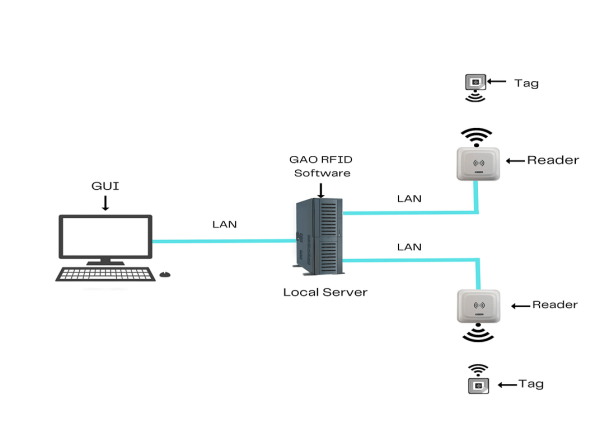
To satisfy its customers, GAO’s RFID or RFID Systems for demolition industry are offered in 2 versions. One version is that its software is running on a local server that normally is on our client’s premise, and another version runs in the cloud. The cloud server could be GAO’s cloud server, client’s own cloud server or a cloud server from one of the leading cloud server providers such as Amazon Web Services (AWS), Microsoft Azure, Google Cloud, IBM Cloud (formerly SoftLayer), Oracle Cloud, RedHat, Heroku, Digital Ocean, CloudFlare, Linode and Rackspace. The above illustrates GAO system for Dam and Water Control Construction with its software running on a local server.
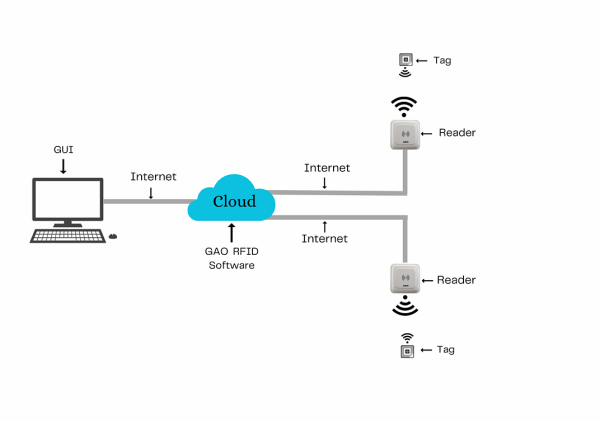 The above illustrates GAO system for the demolition with its software running in cloud.
The above illustrates GAO system for the demolition with its software running in cloud.
GAO’s RFID and BLE technologies, consisting of RFID readers, RFID tags, BLE gateways, BLE beacons, software, cloud services and their systems, have the following applications demolition industry such as:
- Efficient Asset Tracking: GAO’s RFID tags can be attached to equipment, tools, and materials, enabling accurate and automated tracking throughout the demolition process. This reduces the time and effort spent on manual inventory management, improves accountability, and minimizes the risk of loss or theft.
- Enhanced Safety and Security: Our RFID technology can be used for access control, ensuring that only authorized personnel have access to specific areas or equipment. It can also track the presence and location of workers, improving safety measures and emergency response capabilities.
- Improved Inventory Management: Our RFID tags on materials and supplies enable real-time inventory tracking, facilitating efficient procurement, and reducing waste. This ensures that the right materials are available when needed, minimizing delays and project disruptions.
- Improved Project Planning and Execution: Our RFID data can provide valuable insights into project timelines, resource allocation, and workflow optimization. This allows for better planning and execution of demolition activities, leading to increased efficiency and cost savings.
GAO’s drone technologies find the following applications in the demolition industry:
- Pre-demolition surveys: Drones can conduct detailed aerial surveys of the structure to be demolished, providing valuable data and insights for demolition planning and safety assessments.
- Structural assessment: Drones equipped with cameras and sensors can assess the structural integrity of buildings or structures, helping identify weak points and potential hazards.
- 3D modeling: Drones can create high-resolution 3D models of the building or site, aiding in the development of precise demolition strategies and project visualization.
- Site planning and analysis: Drones provide an aerial view of the demolition site, helping project managers to plan the most efficient demolition process and strategize debris removal.
- Safety inspections: Drones can access hard-to-reach or hazardous areas without endangering human workers, enabling regular safety inspections during the demolition process.
- Environmental impact assessment: Drones can monitor and assess the environmental impact of the demolition, including dust and debris dispersion, noise levels, and air quality.
- Progress monitoring: Drones can capture real-time images and videos of the demolition progress, allowing project managers to monitor and document the work at different stages.
- Asbestos and hazardous material detection: Drones equipped with specialized sensors can detect hazardous materials like asbestos, helping to ensure safe handling and disposal.
- Debris tracking: Drones can assist in tracking and managing debris during the demolition, enhancing the efficiency of waste removal and recycling processes.
- Post-demolition site analysis: After the demolition is complete, drones can perform site surveys to analyze the results and plan for potential future development or restoration.
GAO’s IoT technologies, consisting of IoT sensors, sensors networks and systems, find the following applications in the demolition industry:
- Real-time monitoring: IoT sensors can be deployed in buildings or structures scheduled for demolition to monitor various parameters such as structural integrity, temperature, and vibrations in real-time.
- Predictive maintenance: IoT sensors can track the condition of demolition equipment, such as excavators and cranes, and predict maintenance needs, reducing downtime and optimizing equipment performance.
- Safety monitoring: IoT wearables and sensors can be used to monitor the health and location of workers during the demolition process, enhancing safety measures and enabling immediate response to emergencies.
- Dust and air quality monitoring: IoT devices can monitor dust and air quality during demolition, ensuring compliance with environmental regulations and protecting the health of workers and nearby residents.
- Equipment tracking and utilization: IoT-enabled tracking systems can monitor the location and usage of demolition equipment, optimizing their utilization and preventing theft.
- Debris management: IoT technologies can track and manage debris removal and recycling, improving waste management practices and reducing the environmental impact of demolition projects.
- Remote control and automation: IoT allows for remote control and automation of demolition machinery, enabling operators to control equipment from a safe distance and improve precision in the demolition process.
- Energy efficiency: IoT sensors can optimize energy usage on the demolition site, ensuring efficient operation of lighting, heating, and cooling systems.
- Site security: IoT-based surveillance systems can monitor the demolition site for unauthorized access or potential security breaches, preventing theft and vandalism.
- Data analytics and decision support: IoT-generated data can be analyzed to gain insights into demolition performance, worker productivity, and resource allocation, helping decision-makers improve project planning and execution.
GAO Helps Customers Comply with Standards, Mandates & Regulations of the Demolition
GAO RFID Inc. has helped many companies in the demolition to deploy RFID, BLE, IoT and drone systems and to ensure such deployments complying with the applicable industry standards, mandates and government regulations:
RFID, BLE, IoT, & Drone Standards & Mandates
- ISO/IEC 18000-6C (EPC Global):
- Bluetooth SIG (Special Interest Group) Profiles:
- MQTT (Message Queuing Telemetry Transport):
- International Civil Aviation Organization (ICAO) Standards:
- ISO/IEC 15693:
- GATT (General Agreement on Tariffs and Trade):
- Data Privacy:
- European Union Aviation Safety Agency (EASA) Regulations:
Government Regulations for Demolition industry:
- Occupational Safety and Health Administration (OSHA) Regulations for Demolition
- Environmental Protection Agency (EPA) Regulations for Demolition Activities
- National Emission Standards for Hazardous Air Pollutants (NESHAP) for Demolition and Renovation
- Resource Conservation and Recovery Act (RCRA) Requirements for Demolition Waste
- Clean Air Act (CAA) Requirements for Demolition Projects
- Clean Water Act (CWA) Regulations for Demolition Debris Disposal
- National Pollutant Discharge Elimination System (NPDES) Permitting for Demolition Runoff
- Asbestos Hazard Emergency Response Act (AHERA) Requirements for Asbestos in Demolition
- Lead-Based Paint Renovation, Repair, and Painting (RRP) Rule for Demolition Activities
- National Historic Preservation Act (NHPA) Regulations for Historic Sites and Demolition
- Comprehensive Environmental Response, Compensation, and Liability Act (CERCLA) Requirements for Demolition and Cleanup of Hazardous Substances
- Demolition Safety Standards and Codes (e.g., ANSI/ASSE A10.6)
- Building Code Requirements for Demolition Projects (varies by state and local jurisdictions)
- Federal Emergency Management Agency (FEMA) Guidelines for Demolition After Disasters
- Department of Transportation (DOT) Regulations for Transporting Demolition Debris
- S. Department of Housing and Urban Development (HUD) Guidelines for Demolition in Federally Funded Projects
- National Fire Protection Association (NFPA) Standards for Demolition Safety (e.g., NFPA 241)
- Department of Labor Regulations for Worker Safety in Demolition
- Environmental Assessment Requirements for Federal Demolition Projects
- Noise Pollution Control Regulations for Demolition Activities.
Canadian Government Regulations for Demolition industry:
- Canadian Environmental Assessment Act (CEAA) Regulations for Demolition
- Canadian Environmental Protection Act (CEPA) Requirements for Demolition Activities
- Canadian Occupational Health and Safety (OHS) Regulations for Demolition
- Asbestos Regulations under the Canadian Environmental Protection Act (CEPA) for Demolition Projects
- Transportation of Dangerous Goods (TDG) Regulations for Demolition Debris Transport
- Canadian Building Code Requirements for Demolition Projects
- Canadian Environmental Quality Guidelines (CCME) for Demolition Waste Disposal
- Canadian National Emission Standards for Hazardous Air Pollutants (NESHAP) for Demolition
- Canadian National Fire Code (NFC) Guidelines for Demolition Safety
- Canadian Standards Association (CSA) Standards for Demolition Practices (e.g., CSA Z317.2)
- Canadian Environmental Assessment Agency (CEAA) Guidelines for Demolition Projects
- Canadian Environmental Site Assessment Standards for Pre-Demolition Assessments
- Canadian Demolition Safety Guidelines (e.g., CSA Z185)
- Canadian Environmental Code of Practice for Demolition
- Canadian Energy Efficiency Regulations for Demolition Site Lighting and Equipment
- Canadian Transportation of Dangerous Goods (TDG) Regulations for Demolition Debris Handling
- Canadian Environmental Site Assessment Phase I and II Standards for Demolition Sites
- Canadian National Historic Preservation Act (NHPA) Requirements for Historic Sites and Demolition
- Canadian National Fire Protection Association (NFPA) Standards for Demolition Safety (e.g., NFPA 241)
- Canadian Department of Transportation (DOT) Regulations for Transporting Demolition Debris.
GAO Software Provides Easy Integration with API
GAO’s RFID and BLE software offers a free trial for both the server-based and cloud versions, and offers an API to the important systems in the demolition such as:
Personnel Management:
- Workforce Scheduling and Time Tracking
- Safety Training and Certification Management
- Performance and Productivity Tracking
Equipment Management:
- Asset Tracking and Maintenance
- Equipment Utilization and Deployment
- Fuel and Maintenance Management
Access Control:
- Site Security and Access Management
- Visitor Management
Warehouse Management:
- Order Fulfillment and Delivery
- Stock Replenishment and Demand Planning
- Inventory Management
Supply Chain Management:
- Stock Replenishment and Demand Planning
- Procurement and Purchase Order Management
- Logistics and Transportation
Other Applications:
- Environmental Compliance and Waste Management
- Document and Project Management
- Cost Estimation and Budgeting
GAO has enabled its customers to make use of some of leading software and cloud services in the demolition industry. Below are some of popular software and cloud services in the demolition industry such as Bamboo HR, SAP Extended Warehouse Management (EWM), Honeywell Pro-Watch, AutoCAD, BIM 360, Plan Grid, Microsoft 365, Box, B2W Maintain, SAP Supply Chain Management (SCM), JDA Software, HID Global.
GAO has worked with some of the leading technology companies in the demolition in to provide integrated its RFID, BLE, IoT and drone solutions to customers. Here are some of the technology leaders in the demolition industry such as Viewpoint Construction Software, Leica Geo systems, MSA Safety, Trimble, HCSS, Caterpillar Inc., Volvo Construction Equipment, Safe Zone, Builder, Storm, Rubicon, Genesis Attachments, Dust Control Technology.
Case Studies of RFID Application
Triax Technologies offers an IoT-enabled platform called Spot-r that utilizes RFID technology for construction site visibility, safety monitoring, and asset tracking. Their solutions include wearable devices and RFID tags for workers, equipment, and materials.
Atlas RFID Solutions provides construction-specific RFID solutions for asset management, materials tracking, and supply chain management. Their offerings include RFID tags, mobile applications, and cloud-based software platforms.
Building System Planning (BSP) provides RFID-based solutions for construction site management, including asset tracking, tool management, and safety monitoring. Their solutions use RFID tags, mobile devices, and cloud-based software.
Skanska USA (Construction Industry) company, implemented RFID technology to track tools and equipment on their construction sites. RFID tags were attached to each asset, allowing real-time visibility and inventory management. This improved asset utilization, reduced loss, and enhanced project efficiency.
Gilbane Building Company (Construction Industry) implemented RFID technology to enhance safety and productivity on construction sites. Workers were issued RFID badges, enabling automated attendance tracking, access control, and location monitoring. This improved worker safety and facilitated more accurate project scheduling.
Many applications of RFID by GAO can be found here.
Case Studies of IoT Applications
Below are some IoT application cases in demolition industry.
IoT sensors installed on buildings or structures slated for demolition can provide real-time data on structural integrity, enabling demolition teams to assess risks and plan the most effective and safe demolition approach.
IoT wearables equipped with sensors can be used by workers during demolition projects to monitor vital signs, movement patterns, and location, enhancing safety on the job site.
IoT devices can measure and track environmental parameters such as dust levels, noise, and air quality during demolition, helping to ensure compliance with environmental regulations.
IoT-enabled tracking systems can monitor the usage and location of demolition equipment, optimizing their deployment and reducing downtime.
IoT-based tracking systems can help manage demolition debris, track recyclable materials, and optimize waste management processes.
Drones equipped with IoT sensors can capture aerial footage and data of the demolition progress, providing real-time insights to project managers.
IoT sensors on demolition equipment can monitor performance metrics and predict maintenance needs, improving equipment uptime and efficiency.
Remote equipment control: IoT-based remote control systems can enable operators to control demolition equipment from a safe distance, reducing risks during hazardous operations.
Case Studies of Drone Applications
Below are some drone application cases in demolition industry.
Drones equipped with cameras can capture aerial footage of demolition projects in real-time, allowing project managers to monitor progress and make informed decisions.
Drones can conduct detailed aerial surveys of structures slated for demolition, providing valuable data for project planning and safety assessments.
Drones equipped with sensors and cameras can assess the structural integrity of buildings or structures, helping identify weak points and potential hazards.
Drones can monitor and assess environmental factors such as dust dispersion, noise levels, and air quality during demolition, aiding in compliance with environmental regulations.
Drones equipped with cameras can provide live aerial footage of demolition projects, enabling project managers to track progress and optimize workflows.
Drones can monitor environmental parameters like dust levels, noise, and air quality during demolition, ensuring compliance with environmental regulations and minimizing the impact on surrounding areas.
Drones equipped with sensors can monitor the structural health of buildings or structures scheduled for demolition, helping demolition teams assess risks and plan the safest approach.
Drones can assist in managing demolition debris, tracking recyclable materials, and optimizing waste management processes.
GAO RFID Systems & Hardware for the Demolition
GAO RFID Inc. offers the largest selection of BLE gateways, BLE beacons, RFID readers, tags, antenna, printers, and integrated RFID systems for various industries, including the demolition.
BLE (Bluetooth Low Energy)
GAO offers advanced BLE gateways:
as well as versatile beacons with such important functions as temperature, humility, vibration and panic button:
GAO’s BLE technology is suitable for many industries, including the demolition.
UHF (Ultra High Frequency) RFID
GAO offers the largest selection of UHF RFID readers for various industries, including the demolition:
GAO RFID offers the widest choice of UHF RFID tags, labels, badges, wristbands for various industries, including the demolition:
and an array of antennas to address different applications:
HF (High Frequency), NFC (Near Field Communications) and LF (Low Frequency) RFID
GAO offers the largest selection of HF, NFC, and LF RFID readers for various industries, including the demolition:
HF, NFC and LF RFID tags, labels, badges, wristbands for various industries, including the demolition:
and antennas:
GAO also offers RFID printers:
Digital I/O adapters:
and relay controllers:
For embedded applications, GAO offers UHF, HF and LF RFID reader modules:
- Find Your 860-960 MHz RFID Module
- Find Your 13.56 MHz High Frequency RFID Module
- Find Your 125 kHz RFID Reader Modules
The RFID systems by GAO are highly popular for clients in the demolition:
Physical asset or operational equipment tracking system:
Assets that can be effectively tracked using GAO’s technologies include
List of some common special equipment used in demolition such as Excavators ,High-Reach excavators, Wrecking balls, Hydraulic crushers, Demolition shears, Concrete splitters, Rock splitters, Skid steer loaders, Diamond wire Saws, Concrete crushers, Dust suppression systems, and Robotic demolition equipment.
People or workers tracking system:
Physical asset or operational equipment tracking system:
Personnel or people access control system:
Parking or vehicle control system:
GAO Has Served the demolition industry Extensively
GAO’s products and technologies have helped its customers in the demolition Industry to achieve success in Sustainable Demolition, Selective Demolition, Deconstruction, High-Reach Demolition, Lean Demolition, Safety Culture, Building Information Modeling (BIM), Robotics and Automation, Data Analytics and Predictive Maintenance, Asbestos and Hazardous Material Management, Digital Documentation and Project Management, and Circular Economy.
GAO RFID Inc. has deployed RFID, BLE and IoT projects for many companies in the demolition, including many in its various divisions such as
- Commercial Demolition: This division focuses on the demolition of commercial structures, such as office buildings, retail spaces, hotels, and warehouses.
- Industrial Demolition: Industrial demolition involves the demolition of large-scale industrial facilities, such as factories, power plants, refineries, and manufacturing plants.
- Residential Demolition: Residential demolition focuses on the demolition of houses, apartments, and other residential structures.
- Interior Demolition: This division specializes in the selective demolition of interior spaces within existing structures, often done for renovation or remodeling purposes.
- Bridge and Infrastructure Demolition: Bridge and infrastructure demolition involves the removal and dismantling of bridges, highways, tunnels, and other infrastructure elements.
- High-Rise Demolition: High-rise demolition refers to the demolition of tall buildings or skyscrapers, often requiring specialized techniques and equipment.
- Structural Demolition: Structural demolition involves the dismantling or removal of the load-bearing components of a structure, such as beams, columns, and foundations.
- Concrete and Masonry Demolition: This division focuses on the demolition of concrete and masonry structures, including walls, floors, and pavements.
- Marine Demolition: Marine demolition deals with the demolition of structures located in or near bodies of water, such as piers, docks, and offshore platforms.
- Emergency Demolition: Emergency demolition services are provided in situations where immediate and unplanned demolition is required, often due to safety concerns or disaster response.
- Hazardous Material Remediation: This division specializes in the safe removal and disposal of hazardous materials, including asbestos, lead, mold, and other contaminants commonly found in older structures.
Here are some of the leading companies in the demolition industry:
- Cherry Companies: A full-service demolition contractor with expertise in structural demolition, site clearing, recycling, and debris removal.
- H. Griffin Companies: Specializes in industrial and commercial demolition, dismantling, asset recovery, and environmental services.
- NADC (North American Dismantling Corp): A national demolition contractor offering services in interior demolition, selective demolition, and structural dismantling.
- Brandenburg Industrial Service Company: Known for large-scale demolition, decommissioning, and environmental remediation projects.
- Envirocon: Provides environmental and demolition services with expertise in hazardous materials handling, industrial cleaning, and abatement.
- Cardinal Contracting Company, Inc.: Offers comprehensive demolition, excavation, and site preparation services.
- Costello Dismantling Co., Inc.: Specializes in industrial and commercial demolition, asbestos removal, and hazardous materials management.
- Murray Demolition: An experienced demolition contractor handling a variety of projects, including complex high-rise demolitions.
- CDI (Contract Demolition, Inc): Provides specialized demolition services for bridges, stadiums, and challenging structures.
- Adamo Group: Offers complete demolition and environmental services, including recycling and waste management.
- Penhall Company: Specializes in concrete cutting, coring, and demolition services across various industries.
- Pacific Blasting & Demolition Ltd.: Known for controlled blasting and precision demolition services in the mining and construction sectors.
- Elder Demolition: Offers industrial and commercial demolition services with a focus on sustainable practices and recycling.
- Silverado Contractors, Inc.: Provides demolition, excavation, and site development services in California and surrounding areas.
- Chaparral Enterprises, Inc.: Offers demolition, concrete recycling, and hauling services for commercial and residential projects.
- Penhall Technologies: Provides advanced non-destructive testing and scanning services for pre-demolition assessments.
- Able Demolition Services: Specializes in selective interior demolition and dismantling of various structures.
- Habitat Demolition Contractors: Known for sustainable demolition practices and the salvage and resale of materials.
- Sierra Group: Offers demolition, excavation, and site development services with a focus on safety and efficiency.
- A to Z Demolition Inc.: Provides comprehensive demolition services, including site clearing, asbestos abatement, and debris removal.
- Priestly Demolition Inc.: A leading Canadian demolition contractor offering services in structural demolition, implosion, and site clearing.
- Budget Demolition: Known for industrial and commercial demolition, hazardous material removal, and recycling services.
- DFI Demolition: Offers full-service demolition and environmental remediation services across Canada.
- Simcoe Building Centre: Provides comprehensive demolition and dismantling services with a focus on safety and sustainability.
- Kieswetter Demolition: Specializes in industrial and residential demolition, asset recovery, and recycling.
- Trillium Contracting: Offers demolition and excavation services with a focus on environmental responsibility.
- Mazza Demolition & Recycling: Known for demolition, concrete crushing, and waste recycling services.
- Abcott Construction Ltd.: Provides comprehensive demolition and site preparation services across various industries.
- Champlain Demolition: Offers selective interior demolition and dismantling services for commercial and residential projects.
- CRS Demolition: Specializes in hazardous materials abatement, structural demolition, and salvage.
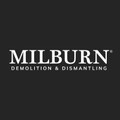
MilBurn Demolition

Tiny’s Demolition& Recycling

Kroeker Inc. Demolition & Recycling Contractors
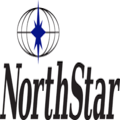
NorthStar Group Services Incorporated.

Lindamood Demolition
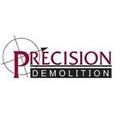
Precision Demolition

National Salvage and Service.

Brandenburg Industrial Services Co.
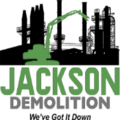
Jackson Demolition Service incorporated.
East coast Abatement Demolition incorporated.

Independence Excavating Incorporated.

Select Demo Services.
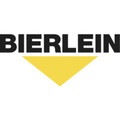
Bierlein Companies Incorporated
 D.H.Griffin wrecking Company Incorporated
D.H.Griffin wrecking Company Incorporated

Penhall Company
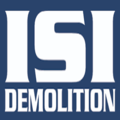
Interior Specialists Incorporated

Cornerstone Demolition Corporated
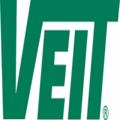
VEIT Company Incorporated
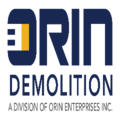
ORIN Demolition
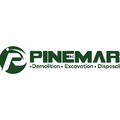
Pinemar Demolition
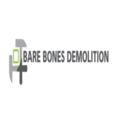
Bare Bones Demolition
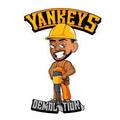
Yankey’s Demolition

M3C Demolition

Eddy’s Demolition
